Tech
-
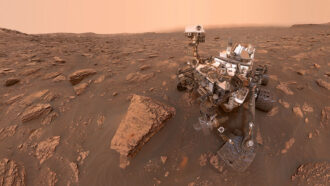 Tech
TechLet’s learn about space robots
Space robots can take pictures of other planets, analyze samples of their surface and even peer into their interiors.
-
 Tech
TechA robot referee can really keep its ‘eye’ on the ball
Have you ever yelled at a referee for making a bad call? Technology has begun taking over some calls in an attempt to make sports fairer.
-
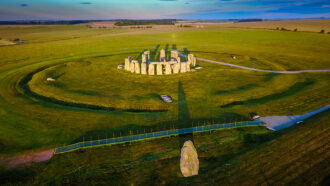 Archaeology
ArchaeologyUnderground mega-monument found near Stonehenge
Archaeologists used high-tech tools to uncover ancient underground pits near Stonehenge. The find may offer insights into Britain’s Stone Age culture.
-
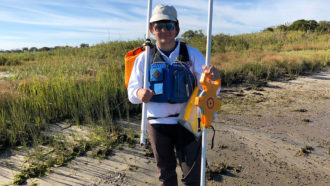 Science & Society
Science & SocietyFor teens, big problems may lead to meaningful research
Several teens who competed at the Regeneron Science Talent Search applied their STEM know-how to solve problems they or their communities faced.
-
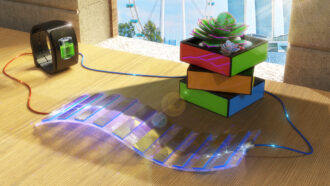 Physics
PhysicsA contrast between shadows and light can now generate electricity
A new device exploits the contrast between bright spots and shade to produce a current that can power small electronics.
-
 Tech
TechScientists Say: GPS
A GPS system relies on satellites orbiting the planet, constantly sending signals back to receivers on Earth.
-
 Chemistry
ChemistryWorking up a sweat may one day power up a device
Tech that turns sweat into power may make for greener gadgets. A new device uses perspiration to charge a supercapacitor and run a sensor.
-
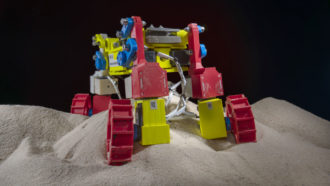 Tech
TechWiggly wheels might help rovers plow through loose lunar soils
New design lets wheels ascend hills too steep for regular robots and paddle through loose soils without getting stuck.
-
 Tech
TechWaiting for a ‘smart’ toilet? It’s nearly here
With every bathroom visit, we flush away important health data. Scientists hope to change that with 'smart toilets' that analyze your body’s output.
-
 Tech
TechOur gut microbes love a good workout
Technology shows how microbes in the body respond to exercise. That helps scientists understand why those microbes keep athletes healthy.
-
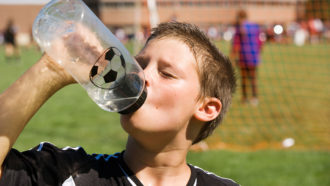 Tech
TechSweat tech alerts athletes when to rehydrate — and with what
Technology shows how the body responds to moderate and vigorous exercise. That helps athletes stay healthy — and helps scientists understand why.
-
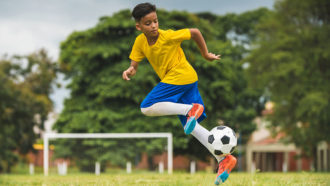 Tech
TechWhy sports are becoming all about numbers — lots and lots of numbers
Sports once focused on muscles, skill and tactics. Now math is becoming almost as important. It helps assess players — and improve their tools.